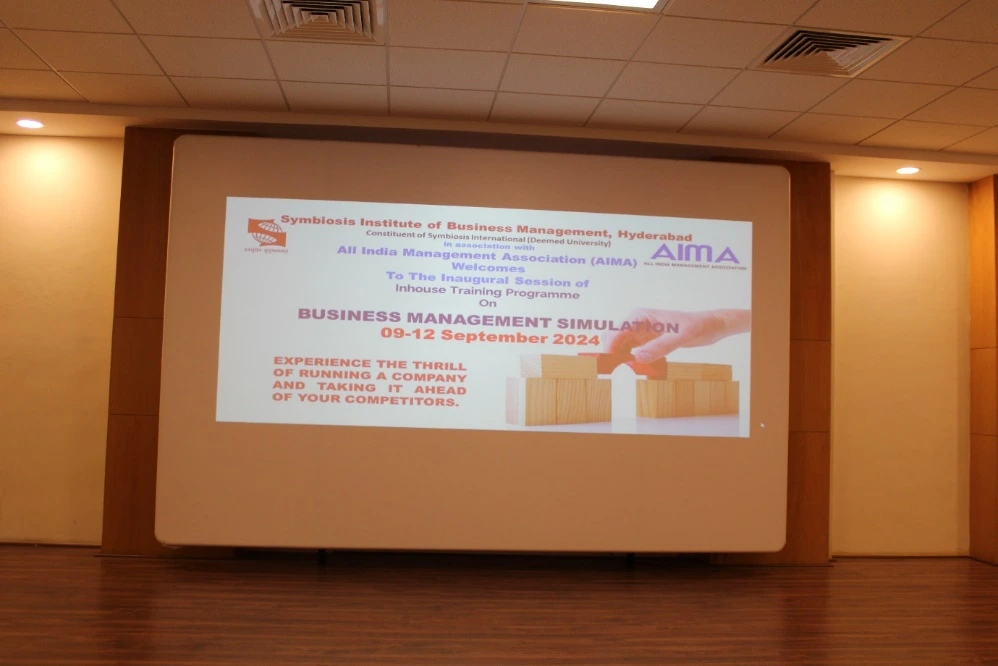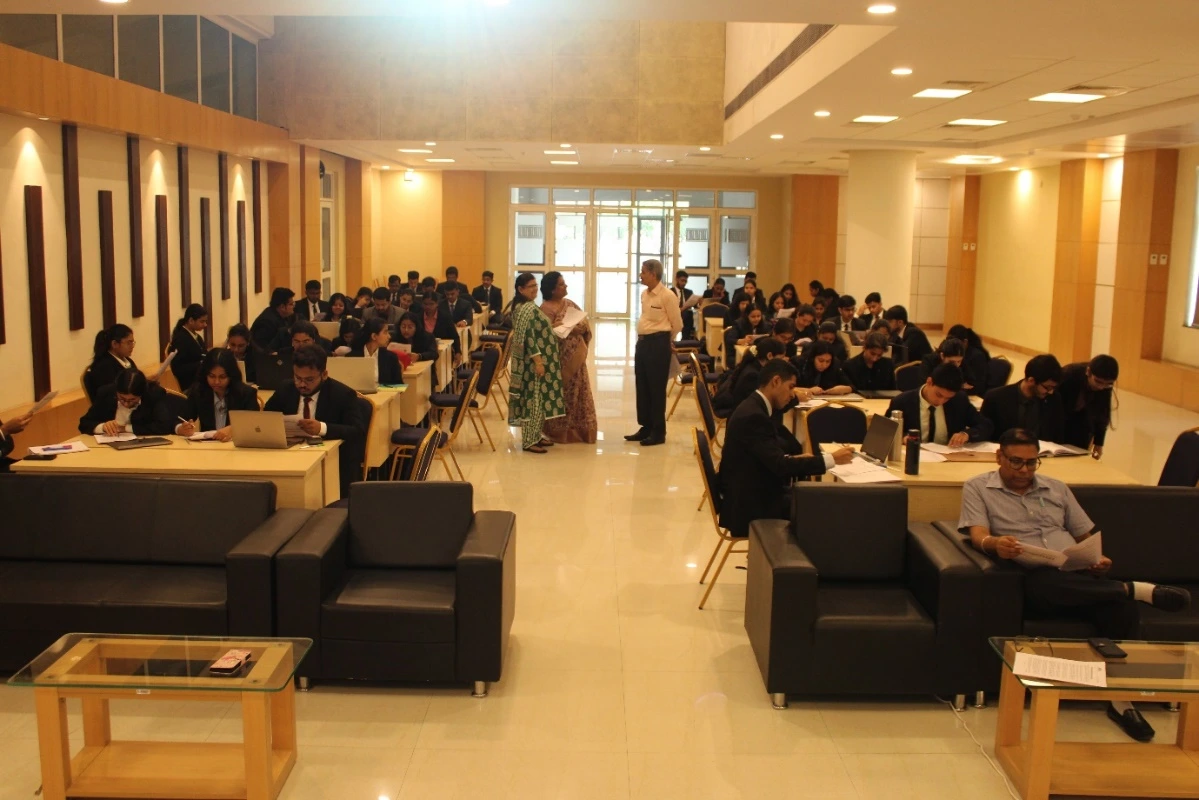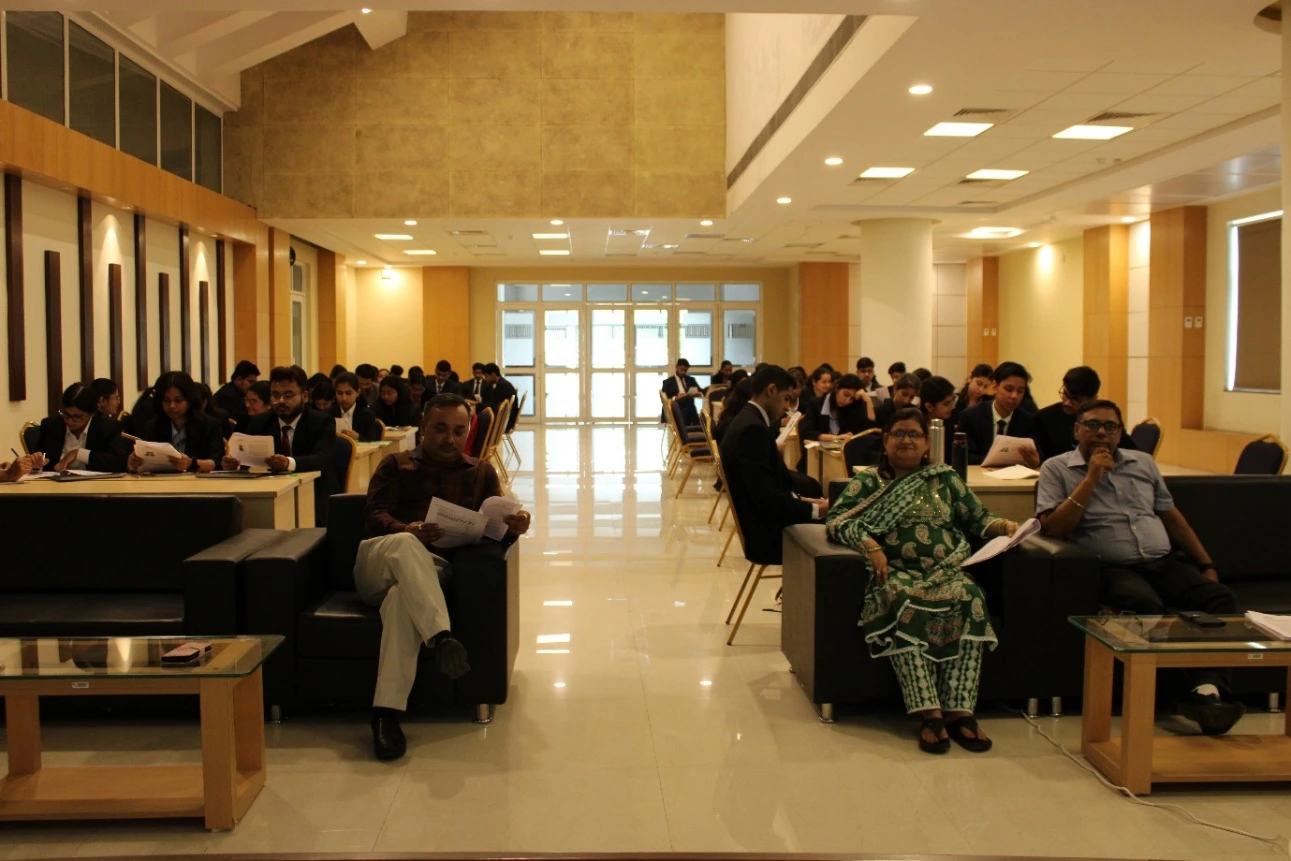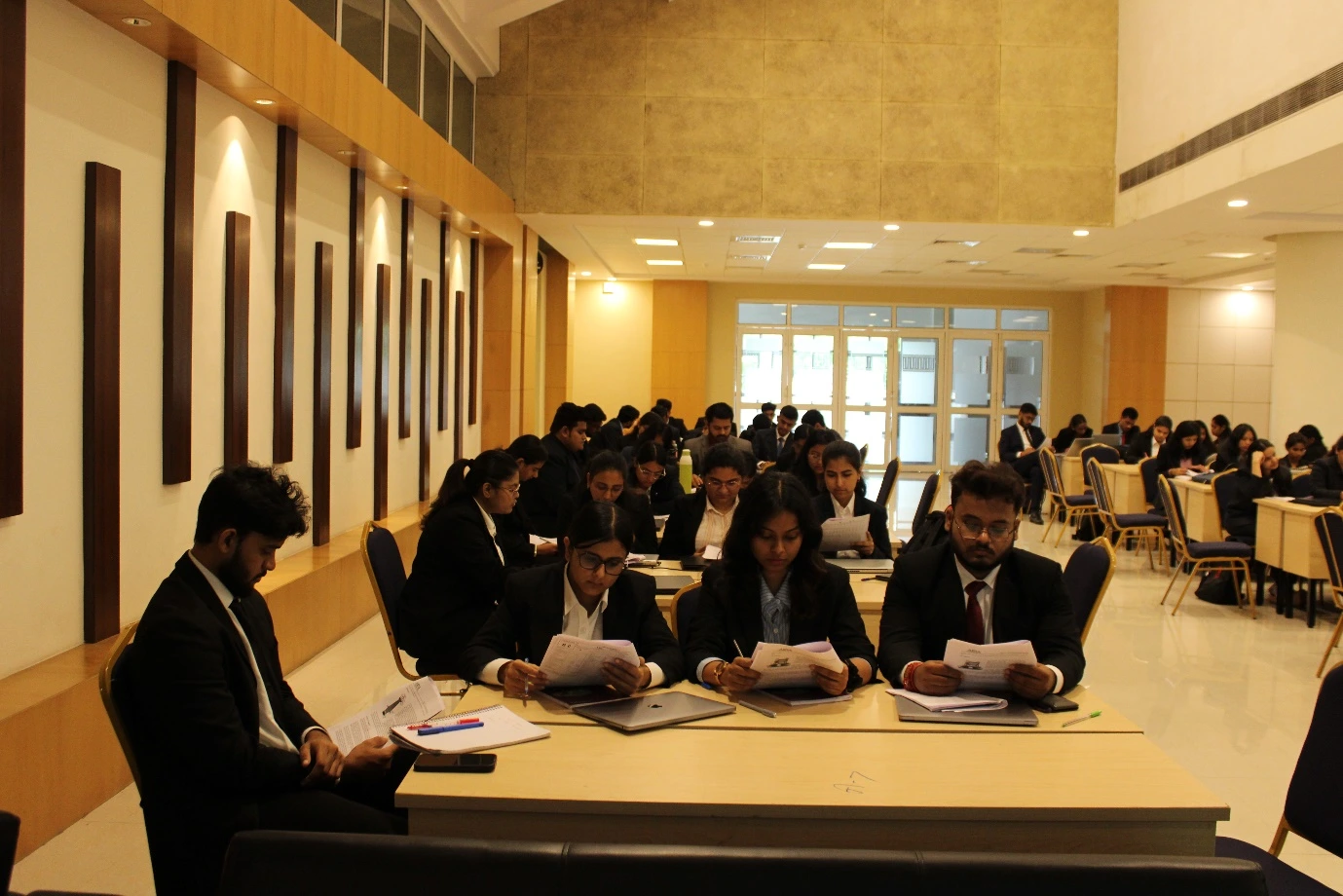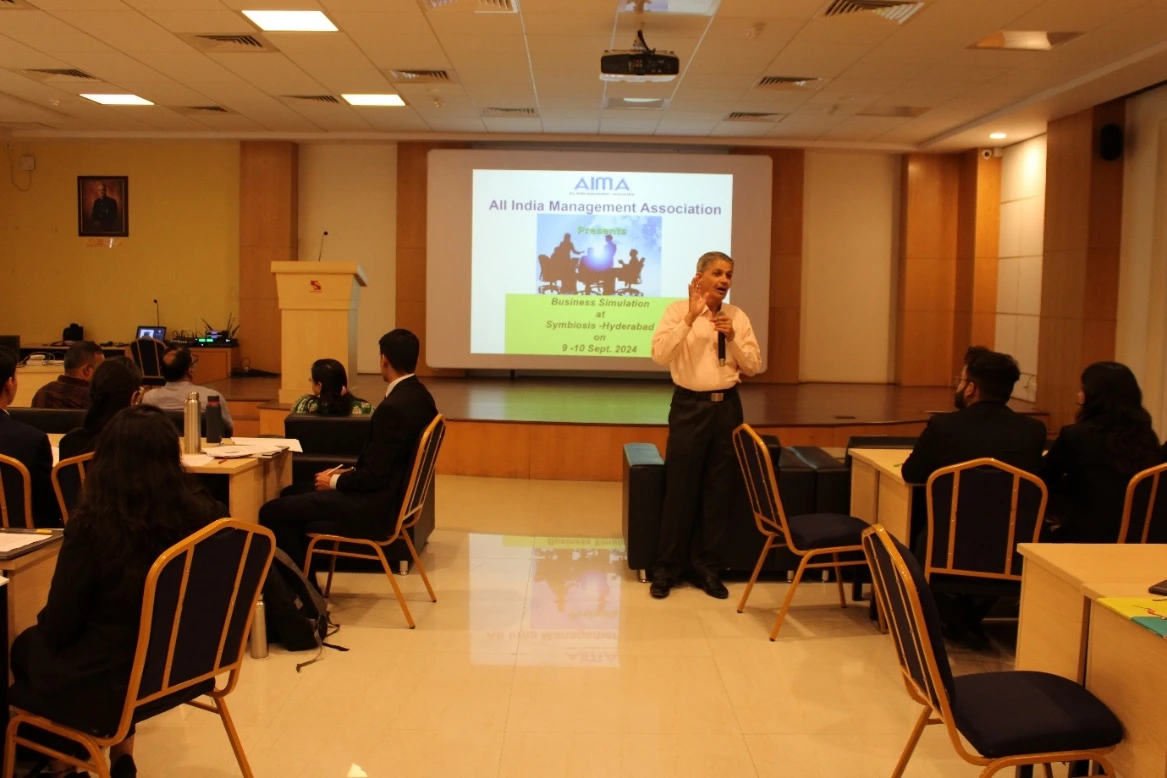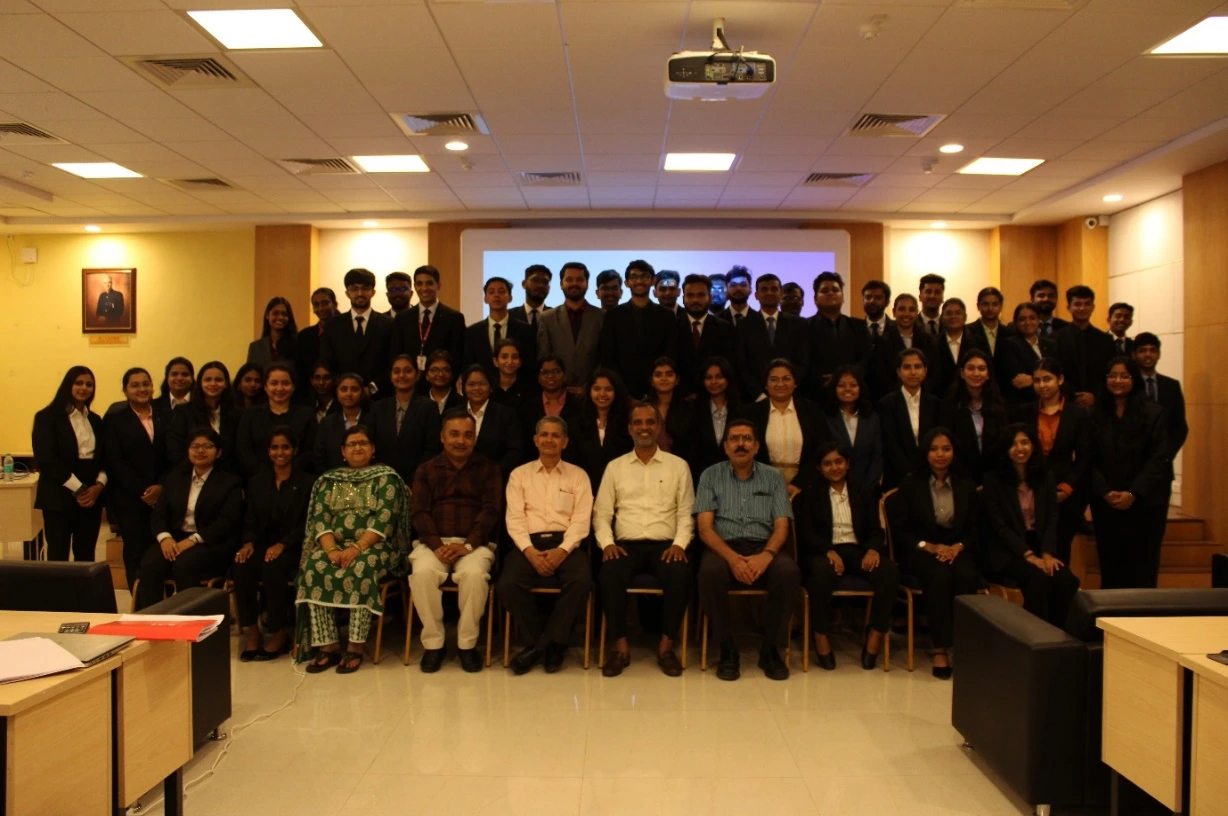
Business Management Simulation Program
Event Name: Business Management Simulation Program
Objective: The Cell for Skills, SIBM-Hyderabad
In Collaboration with:All India Management Association (AIMA), New Delhi
Date9th - 12th September 2024
Venue: SIBM-Hyderabad Campus
Outcome: The Business Management Simulation Program, conducted by The Cell for Skills at SIBM-Hyderabad in collaboration with the All India Management Association (AIMA), was held from 9th to 12th September 2024. This program was designed to provide MBA-I Semester students with practical, immersive experiences simulating real-world business environments. The aim was to enhance their decision-making and strategic thinking skills by allowing them to apply theoretical knowledge in a controlled, dynamic business simulation setting.
Objectives:
-
Provide students with practical exposure to business functions, strategies, and challenges through a controlled simulation environment.
-
Enable students to apply theoretical knowledge to real-world situations and enhance their decision-making abilities.
-
Develop a deeper understanding of how various business functions (finance, marketing, operations, etc.) interrelate and work together.
-
Foster teamwork, leadership, and analytical skills in a dynamic and competitive setting.
Program Highlights:
The Business Management Simulation Program spanned over four days, with Section-A participating on 9th-10th September and Section-B on 11th-12th September. Each day consisted of 6-7 hours of simulation sessions (from 9:00 AM to 5:30 PM), during which students were divided into teams and tasked with running a simulated business. Each session was led by Mr. S. C. Tyagi, Dy. Director of Business Simulation at AIMA, New Delhi, who brought over three decades of expertise to the program. Students were divided into teams representing different companies, where they had to make decisions in the areas of
Simulation Structure:
The students were organized into teams of 5, with each team acting as the management of a simulated company operations, Finance, Marketing and strategy etc. The simulation was designed to mimic real-life market conditions where the teams had to respond to market competition, customer demands, and economic fluctuations. The program challenged the students to manage resources effectively, balance short-term and long-term strategies, and compete with other teams.
Learning Outcomes:
-
Strategic Decision-Making: Students gained insight into how various business functions are interrelated and how decisions in one area impact the overall success of a company.
-
Financial Acumen: The program helped students enhance their understanding of financial reports, budgeting, and cash flow management.
-
Leadership and Teamwork: The simulation fostered teamwork and leadership skills, as students had to collaborate effectively and make decisions under time pressure.
-
Risk Management: Participants learned to assess risks and make informed decisions to maximize business performance.
-
Market Analysis: The students gained the ability to analyze market trends and adjust their business strategies accordingly.
Participation:
A total of 140 students from MBA-I Semester (divided into two sections) actively participated in the simulation. Each team was evaluated based on their business performance across various metrics such as profitability, market share, customer satisfaction, and innovation. Certificates of participation were issued to all students who successfully completed the program, with special recognition given to the top three performing teams from each section.
Feedback:
The participants provided overwhelmingly positive feedback, emphasizing the value of the hands-on experience in understanding the complexities of business management. Many students appreciated how the simulation helped them to think critically, work under pressure, and manage multiple aspects of a business simultaneously. The trainers from AIMA were commended for their expertise and guidance, which contributed to the success of the program. The interactive nature of the simulation, combined with real-time feedback from the facilitators, ensured that students were fully engaged throughout the event.
Acknowledgments:
The success of the Business Management Simulation Program would not have been possible without the invaluable contributions of:
-
Prof. K. Venugopala Rao, Director, SIBM Hyderabad, for his leadership and continuous support.
-
Mr. S. C. Tyagi, Dy. Director, Business Simulation, AIMA, for his expert guidance and facilitation of the sessions.
-
Dr. Shyam Sunder Chitta, Deputy Director, SIBM Hyderabad, for his organizational efforts and strategic planning.
-
The Cell for Skills at SIBM Hyderabad, which played a crucial role in organizing and managing the event.
Conclusion:
The Business Management Simulation Program was a significant success, providing students with a unique platform to apply their classroom learning in a realistic business environment. The simulation not only strengthened their managerial skills but also prepared them to face real-world challenges as future business leaders.
This initiative by the Cell for Skills at SIBM-Hyderabad, in collaboration with AIMA, is part of the institute’s commitment to providing innovative and industry-relevant education. The program has further cemented SIBM-Hyderabad’s reputation for experiential learning and skill development, ensuring that its graduates are well-prepared for their careers.
